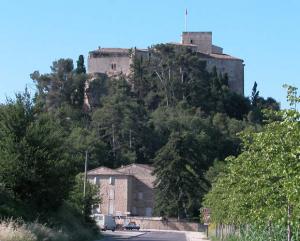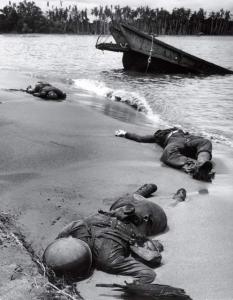ENYUMU-AMA PT.1
"WHERE HAVE ALL THE FLOWERS GONE" The Green Family decides to take time off to go into memory lane to their ancestral home. The story is of love, sadness and joy and, and full of unexpected dangerous twist, Pt.1 an extract of my book 'Enyumu-ama'
ENYUMU-AMA PT.1
by DavidBokoloI struggled out of bed, my eyes still groggy with sleep and fatigue, my mouth soured from the last night late dinner we had at the restaurant.
“Come on Nengi, I nudged my younger sister who was still cocooned up with her wrapper on the bed beside me. “It’s time to get up. Daddy is already up.”
“Oh, what‘s the time?” she removed the wrapper covering her head, stretched out on the bed, blinked her eyes against the single overhead light bulb.
As I stood on the floor, I felt my knees wobbled a little but I managed to get to the bathroom to clean up.
We have arrived at Nembe late last night and drove straight to the White House guest house at the sand field of the town. Dad had called the White house Manager, to book for two rooms for a couple of nights. He was waiting for us as we drove up to the gate in the pitch darkness.
There was no power supply to the town from the national grid. The only source of power in is a giant generating plant supplied by an oil company as their social responsibility to the community. Mom told us that maintaining this plant cost an enormous amount in diesel that the company supplies to the community periodically.
Where supply was delayed, the town stays without power, and individuals had to depend on their personal plants.
“Daddy, it appears Nembe is in darkness today,” Nengi had said as we drove across the little bridge to get into the town, last night.
“It’s our lucky to have come in a day of darkness,” Mom had responded. “But I believe there will be light in the guest house we’re staying at tonight.”
“Which means we may not be even going out to take a walk in the town,” I asked
“Take a walk in which town?” Dad looked at me from the rear mirror, maneuvering the car through the sandy track toward the guest house. “My dear, we’re not going anywhere from this place, not tonight, or any other night until we return to Lagos.”
“Ah Daddy, are we prisoners in our own town? What is wrong for someone to go around the town? Mummy, I thought you said Nembe is a little sweet town, hospitable, blah, blah,” I looked at her, peering out of the window at her side of the car at the water ponds on the edge of the part.
“Come on, Ifiemi, it is still a beautiful little town with all the sweet things still intact. What your daddy is saying is that it is too late in the night for you to go out, seeing that you are not yet familiar with the place, and some boys may take advantage of you.”
“There, Daddy, I think that’s the guest house,” Nengi was pointing to a sign post reflecting from the headlight of the car.
He turned the car and drove up to the gate, honking gently at the horn.
It was about an hour later, and we were all dressed up and were sitting in the reception hall, only mom was still inside, packing. I was standing at the door looking around the environment. The sand field was not in darkness as it was last night when we drove in.
There are a lot of beautiful houses scattered about the whole place. There were no paved roads, but sand parts made by footmark and car tracks. The guest house itself is nestled in a grove of bushes, with birds flying and chirping all around.
From the distance behind the house, I can hear a city coming to life. The sound of the town from this isolated place is electrifying; the honking of horns from cars and motorcycles and the sound of children shouting about the sale of all types food item.
I was even hearing the sound of outboard engines when I was in the bathroom. There was also the sound of a church bell summoning adherents to morning mass.
As I turned to the room, I saw our mom with a bag. She was wearing a blue tracksuit that was tightly fitting on her. We had all agreed to put on tracksuit as Dad had told us that the village would be filled with sand flies. Mine was a Green, our national color, Dad was wearing white and Nengi’s own was blue. We were all putting on canvas shoes.
“Ifiemi, don’t just stand there looking at me. Come and carry the bag for me. I have packed in all the food we’ll eat out there.” She turned to look at Dad, “Honey, what about the boat driver?”
He has been on the phone since we came out. “I have just called him. He is already on his way from the main jetty. We have to move to the jetty at the back. I believe he might be very close. He will pick us from there,” he said standing up and putting on his white face cap.
He has a video camcorder slung around his neck and a little bag where he put his phone. He looked at the boy standing behind the reception desk, “O’l boy, can you help us to carry this bag to the jetty.”
“No need, Dad, I’ll carry it,” Nengi pushed her way to take the bag from Mom. She was eighteen, last month, July. That does not show in her, she is just about my height 5’6, but slimmer than myself. There is no telling the different between the two of us; though, I took after Dad, a bit fat but not showing that being athletic.
I am surprised that at 40, Dad is still playing football with the boys in his school and can still jump a 4’6 high jump. Mom has always been worried that he may dislocate a joint or fracture a bone; a fear he always cast away as unbelief.
As we came out of the gate, I saw, ahead of us, a river snaking from the left to the right, lining with dense short mangrove forest. There is a concrete jetty stretched out to a quarter of the width of the river from the shore. I searched the opposite side of the rivers as we came closer to the jetty. I saw three other smaller rivers cutting into this main river.
As we climbed to the jetty, I looked behind to see the town sprawled out with buildings to the left-hand side and to the right; beautiful buildings, a masterpiece of architectural designs. I made a mental note to ask Mom how the people were transporting their building materials to this place when there was no road.
There is an overhead electric wire line, running from way beyond the end of the sand field into the town; and yet there is no power in this town.
I looked back at the river; there were a number of little wooden canoes crisscrossing it with one or two persons; fishermen, going out to their business of the day. The early morning bridge was blowing in from the sea, coming in with the early morning freshness. The smell of fresh fish and mud was thick in the air.
I turned to see Mom, smiling at me. She must have been following my searching eyes and have crept into my world.
“Did I not tell you, Ifiemi, that you will love this town?”
“Mom, look at the scene, the grasses, the mangrove trees lining the waterfront and spreading to the horizon like a beautifully cultivated horticultural garden.”
I leaned against the railings of the jetty on my back and looked at the steps that run sloppily down into the water at the side. The ones below were filled with greenish slime; one needs to be very careful climbing them.
“The whole of this sand filled area had always not been here. It is a reclaimed land” Mom was explaining to us. “In the 70s, this place was just like the opposite of this river, filled with a mangrove forest, where, as children, we used to come here to pick periwinkle.”
“How did they do that,” Nengi asked, looking around the place.
“Look at the back of the guest house we were coming from,” Mom pointed to the guest house. “You see those blocks of buildings? They are the hostel of the Girls Secondary School. That was where the town ended in the early 80s. The community, in conjunction with the government, carried out a major expansion project and sand filled this area for the new development.”
I looked at the other side of the river where the mangrove swamp spread over a vast expanse of land, the water filled up to the root of the trees and knew that this side of the swamp must have also looked that way before the reclamation; covering all the aquatic life that must have existed here: all now laid buried under the heap of sand and debris from the dredger.
More from DavidBokolo
The Weightless Weight
by DavidBokolo
Some times we got weight down by thoughts and imagination that do not have weight. the sooner we realize that, we'll be up and going. So says the old man
- Aug, 3 2015
- Lyric
"You Ripped my Love Into Shreds"
by DavidBokolo
Too much love of the cat, they say, kills the moth. Most love relationship got broken as a result of wrongly managed petty frail nerves. Like as I love to say, just musing.
- Sep, 11 2015
- Free Verse
Sing Me Another Love Song My Love
by DavidBokolo
I held on to my Love and refused to let Him go even when I feel him slipping away
- Sep, 15 2015
- Free Verse Lyric
"And Yet The battle Rages On"
by DavidBokolo
There are many unsung Heroes whose heroism is lost in time and space
- Sep, 23 2015
- Prose
I Wish I Could Rewind The Time
by DavidBokolo
I wish I had Known Him many years ago, It,s not too late now though, but I wish I could rewind the time
The One Who Bears My Burden
by DavidBokolo
In sequel to a previous poem, 'Sweet Memories Lingers', Good always sail over our pains if we take time to ponder.
- Aug, 27 2015
- Prose







